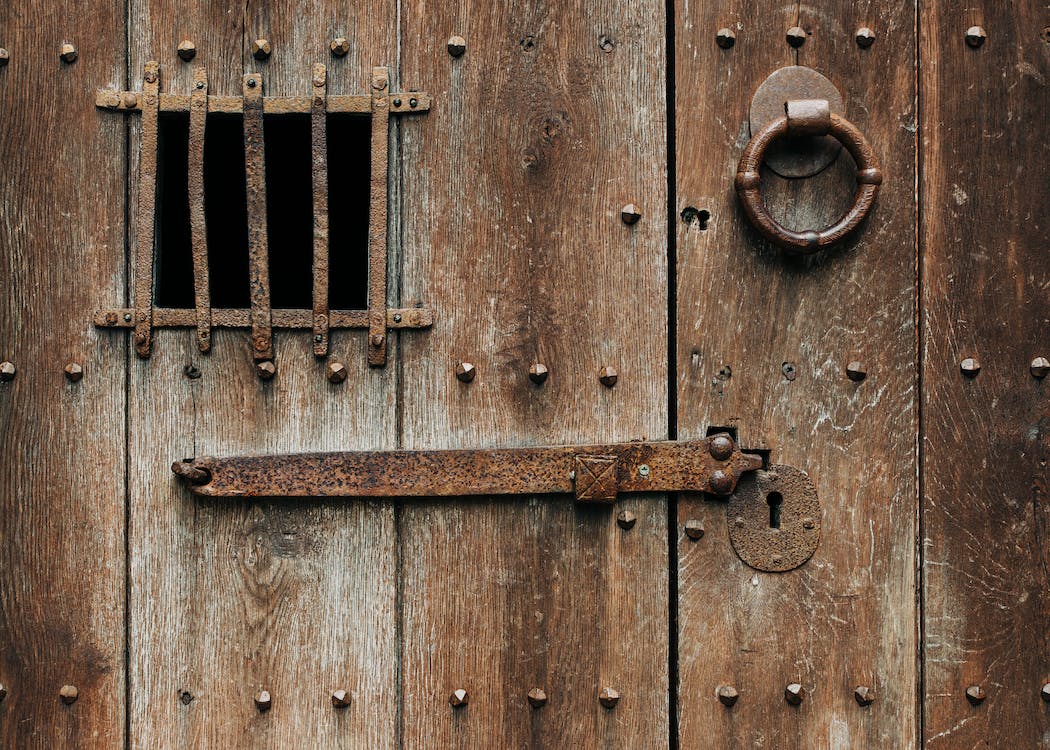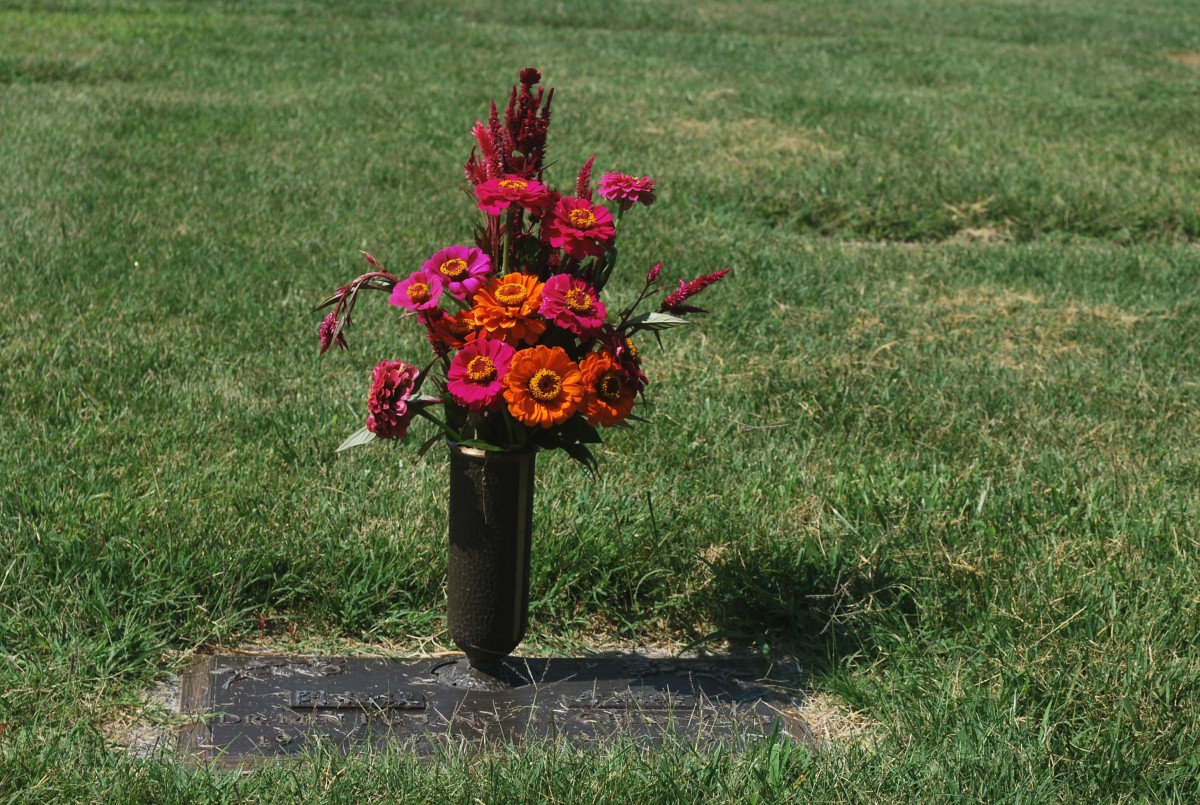Blog
Meditations
White Noise
Monday, January 23, 2023
So apparently I have pneumonia and a partially collapsed lung. Strange; I don't feel that badly off. This is not merely machismo. I legitimately don't feel much different than I usually do.
The culprit is ALS. At some point during every day, every part of my body hurts, so a stitch in my side doesn't attract attention. Trouble breathing? That's every day too. ALS causes a white noise of chronic illness that masks the symptoms of acute illness.
The same is true of the practice of sin. It's a chronic illness too, of the spirit rather than of the body. It distorts our character and our spiritual perceptions, but its familiarity hides the significance of the change from us. What's more, the malevolent white noise of transgression keeps us from recognizing the danger of new sins when they arise.
Beware, then, of sins that have become comfortable and familiar. We accept them as part of our fallen state. We excuse them because of the shortcomings of others.
This comfort, though, is nothing other than the comfort of pneumonia as we pass imperceptibly from life to death. Sin is an emergency. Your porn habit is an emergency. Your trust in riches is an emergency. The more you embrace these and other sins, the more surely they will destroy you.
Fear them. Hate them. Fling them away from you as you would a viper or scorpion. Now is the time, not tomorrow or the next new year. Unless you act, the white noise of your sin will lull you into continued sleep.
Grudges
Monday, January 02, 2023
I hold grudges. It is one of my biggest spiritual failings. I'm not a particularly touchy person, so I don't keep an account of light offenses. However, I do have an excellent memory, and though it is helpful in many other areas, it is not at all helpful here.
When someone betrays my trust, I remember. When someone thwarts my will over something that is important to me, I remember. When someone attacks my character or exalts themselves at my expense, I remember. I remember for a long time.
This is not obvious. When my sister visited for Christmas, she was astonished to learn that I am a grudge-holder. Occasionally, the objects of my grudges find out, when so much resentment accumulates within me that it bursts like a boil (as my poor wife has discovered far too often). Usually not, though.
Nor does my sense of grievance alter my conduct. Even when I resent someone's actions, I still treat them with kindness. I greet them warmly, praise their achievements, and offer them help as I can. I work hard at not rejoicing in their failures, even when those failures are due to their treatment of me. Nonetheless, I continue to remember, with that sense of affronted self-righteousness that is unique to holding a grudge.
This is evil. It is wrong. I know there is considerable debate on this issue. Christians love to go back and forth on whether we must forgive someone if they haven't sought forgiveness. “Do I have to?” They ask. Hint: asking whether we have to carry out a difficult spiritual work is not usually from God.
I think, though, that the debate misses the point. Paul tells us in 1 Corinthians 13 that love does not keep an account of wrongs suffered, which is exactly what grudge-holding is. As always, nothing rubs our noses in our imperfections quite like the commandment to love.
We must love; we must not resent. This is essential for our sakes. I know all too well the toxic effect of resentment. Left unchecked, it can poison an entire life.
At the end of my life, then, I find myself in the final battle against my old enemy. Some of my grievances now have dwindled so much that they no longer move me. In other areas, I am able to acknowledge my role in provoking the bad choices that others made. Whatever its disadvantages, terminal illness does bring the gift of perspective!
Most importantly, though, I am finally able to admit that I am not in control of my own life. We carry grudges because we feel that we have lost control of something that matters to us, whether that be our reputation or even our autonomy.
In reality, life does not consist of those things. People may malign us here, but not even the devil will be able to make an accusation stick against us on the day of judgment. Others may completely take away our autonomy by killing us as they did Christ, but they cannot keep us from being righteous any more than they kept Him from being righteous.
After that, all that is left is offended pride, and the pride of life is fleeting. In this life I experience ever greater humiliation, as many do at the end. In the life to come, even atheists must humble themselves before the Lord.
If you are a member of my grudge-holding tribe, rethink that. It does not help you, it is not good for you, you cannot justify it, and ultimately, it means that you are letting someone else’s carelessness or sin define your life. You are putting resentment where Christ belongs.
I get you (Really! I do!), but it's time to do the hard work of letting go. You will be glad you did, and so will God.
The Memory of the Righteous
Thursday, October 27, 2022
Proverbs 10:7 reads, “The memory of the righteous is blessed, But the name of the wicked will rot.” It neatly sums up what is left of my earthly aspirations. My life is so reduced that the usual distractions don't matter much to me anymore, but my reputation has become even more important.
This is particularly true with respect to my children. Without the direct intervention of God, I will not live long enough to shepherd them to adulthood. I will only be able to help them through their memories and the memories of others. I want them to remember a father who loved God, loved others, and died with faith and courage. For decades to come, I want them to encounter people who will speak well of me.
However, every earthly desire brings with it earthly vulnerability, and this is no exception. I can control what my children see of me, but I can't control what they think of me. It may be that in adulthood, they decide that I was misguided or even actively harmful in the things I proclaimed.
My influence over those outside of my household is even less. Faithful commitment to God does not protect me from distortion and slander. I have been vilified because I adhere to the Bible’s teaching about the role of women in the church and the practice of homosexuality. Some have not hesitated to accuse me of being bigoted and hateful, even though I detect no animosity toward anyone in myself.
Additionally, God holds me responsible for speaking hard truths not only to outsiders but also to His own. The prophets primarily called Israel and Judah to repentance, not the nations. If I only say the things that I know will be popular and well received by other Christians, I join the ranks of the false prophets.
This does not require outright false teaching (though it often leads to such), merely a diplomatic silence about sin inside the camp. Indeed, as long as I confine my condemnations to the people who won't be reading them, I will gain a reputation for “telling it like it is”. The Pharisees had such a reputation, I believe.
Conversely, if I follow those who are scorned and vilified even by God's people, I will find myself in good company. Of course, this begins with the Lord Himself. He was perfect. He literally never did a single thing wrong. However, rather than winning a good reputation for Himself in the Jewish nation, He was rejected and murdered.
Much the same thing happened to the apostle Paul. Even though he served God as faithfully as he knew how, he aroused such hatred among his countrymen that they followed him around, sometimes for hundreds of miles, to slander him further. When the Romans finally killed him, I would imagine that the majority reaction ranged from relief to joy.
Loyalty to God does not ensure a blessed memory on earth. Sometimes it ensures the opposite. However, even if everyone on earth scorns my name, that loyalty guarantees that He will not. If God remembers, it doesn't matter if everyone else forgets.
Special-Needs Parents and Compassion
Monday, October 03, 2022
Once we become Christians, most of us quickly realize that we are never going to perfectly follow God’s commandments. Despite all the spiritual artillery we bring to bear, our hearts and our lives stubbornly remain flawed. In a word, godliness is hard!
Because it is so difficult, many Christians choose to embark on a less painful course of action: perfecting others. All of us know the temptation to sympathize with our own sins while extending no compassion to our struggling brother. Our own spiritual battles are complicated, but the solutions to their problems are clear. “If only they would. . .” we sigh. Sometimes, we feel sufficiently enlightened to take them aside and explain, “If only you would. . .”
However, before we decide to get in touch with our inner Aquila and Priscilla, we need to make sure of two things: that we have engaged in the necessary business of beam removal and that the problem we are critiquing is actually a problem. We are called to compassion not only for the spiritual weakness of our brethren, but for their earthly problems too. We should not mistake the latter for the former.
In particular, we should acknowledge the hurdles encountered by parents of children with special needs. Parenting by itself is difficult enough, even when both parents are there and married to each other, even when plenty of extended family is around to help. When one of those supports is removed, the difficulty level ratchets up.
The same is true, and even more so, when a child faces physical, cognitive, or emotional challenges. Perhaps the child is medically fragile, so that half the calendar is filled with doctor’s appointments and hospital visits. Perhaps they have behavioral struggles, so that they require closer or even constant parental supervision (as a foster parent, I went down that road a little bit myself).
I’m sure that this list could be extended greatly, but one thing is certain. The continuing demands of caring for a special-needs child place a tremendous burden on parents. 24 hours a day, 7 days a week, you’re rarely to never “off”.
It’s the difference between buying something outright and agreeing to a monthly fee. Compared to $500 up front, that $50 on the credit-card statement doesn’t look like much, but as the months and years flow on, it adds up to a considerable amount of money. Because of the continual drain of resources, special-needs parents are operating at half efficiency (or worse) all the time.
Sad to say, when too many brethren encounter such parents, they react by becoming judgmental. They don’t appreciate the 7/8 of the iceberg that they don’t see. Instead, they react with scorn to the 1/8 that they do see: the six-year-old who still makes a scene in church every Sunday, the mom whose name never appears on the sign-up sheets to feed the visiting preacher or take meals to shut-ins. Clearly, all those parents need is a good talking-to, and they’ll shape right up!
No, actually. What they need is our understanding, not its lack. This is not to say that all special-needs parents are perfect and that none of them have room to improve. However, before we designate ourselves the official improver, we need to understand the situation we’re trying to improve.
James, Peter, and I
Wednesday, September 28, 2022
Acts 12 offers one of the great conundrums of the New Testament. In the first few verses of the chapter, the wicked king Herod Agrippa arrests and executes the apostle James, the brother of John. Shortly thereafter, he arrests Peter with the same intention. However, God sends his angel to rescue Peter from prison, and soon after that, Herod becomes worm food.
To most Bible students, this apparently preferential treatment is perplexing. Admittedly, Peter was important to the early church, but so was James. Along with Peter and John, he was one of the three inner-circle apostles during the ministry of Jesus. He was one of only three witnesses to the Transfiguration, and after his death, God was down to two!
Why, then, did God save Peter but allow James to be beheaded? Wasn't James worth an angel too?
At this point, Bible classes usually turn to discussion of the inscrutable will of God. We don't understand why He permits one of His faithful servants to perish while sparing another, but we trust His wisdom, judgment, love, etc.
I too have shared in these discussions, but in the midst of Bible class last night, another thought struck me. The issue here may not be our inability to understand the will of God. It may be our failure to share His priorities.
To us, the death of James may seem senseless and tragic, but it is far from the worst thing to happen to an apostle in the book of Acts. That dubious distinction belongs to Judas, who meets a gory fate in the opening chapter and is erased from the roll of the apostles because of his treachery. He is replaced by Matthias after Peter cites a curse from Psalm 109 as authority for so doing.
The true tragedy here is the story of Judas, not the story of James. It still would have been the true tragedy even if the former had outlived the latter. James fulfilled God's purpose for his life and entered into his reward. Judas betrayed his Lord and entered into a fate so awful that Jesus said it would have been better for him if he had not been born.
We can see all sorts of ways in which James would have been useful in the further spread of the gospel, but self-evidently, he was not necessary. Even Peter, rescued in Acts 12 but martyred on a later occasion, proved not to be necessary. He finished his work, part of which continues with us to this day, and the kingdom went on without him. Both men, I believe, were satisfied to have it so.
I think the same is true of me. Many people have told me how sad it is that my productive life in God's service is going to be cut short. Certainly, it is not the fate that I would have chosen for myself, but it is far from the worst thing that could have happened to me.
I can think of several worse fates off the top of my head. I could have betrayed my marriage vows and been unfaithful to my wife. I could have allowed a porn habit to take over my life and consume me. Intellectual pride could have led me to pervert the gospel I proclaimed. I could have crushed my children and driven them away from God through self-righteous harshness. I could have become a bitter, contemptuous social-media warrior, doing the devil’s work in the name of God.
I would choose death over any of these things, but they are not mere far-fetched hypotheticals. I know my own frame and my own weaknesses. Without the help of God, I would have fallen prey to any or all of them. In some cases, this still may happen. God isn't finished with me quite yet, but Satan isn't finished with me either.
When a servant of God finishes his race, those remaining may mourn his loss, but it is a triumph rather than a tragedy. All of us may serve Him for a time, but His work is greater than any of us, and His purpose will be accomplished with or without us.
We are not necessary to His service. Rather, His service is necessary to us. It outweighs all the concerns of this life. 2000 years from now, will any of us care that we died at 45 rather than 85? Do James and Peter care about the extent of their time on earth right now?
The only thing that will matter to us is that we were faithful, whether for many decades or few. Either one leads to an eternity of glory. Disaster only lies in failure to honor God, for if we do fail, we will have the same eternity to lament it.


